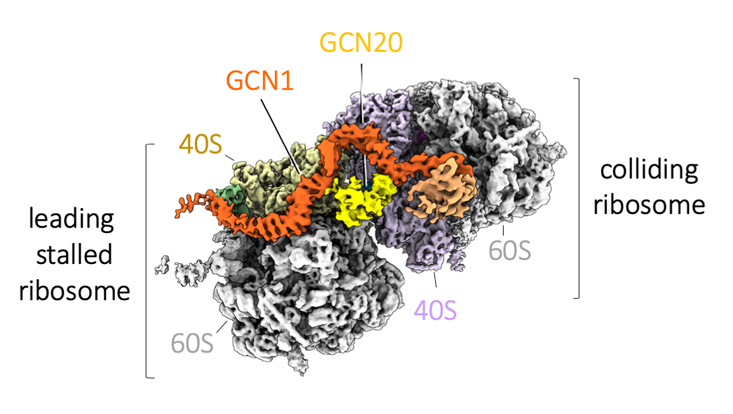Research Project Prof. Wilson: Coping with intracellular stress: GCN proteins monitor ribosome collisions
20 October 2021, by Daniel Wilson

Photo: Wilson
All living cells must adapt to a variety of different environmental stresses in a rapid and efficient way to survive. In all eukaryotes, the so-called “GCN” proteins play a critical role in this transformation. The GCN1 and GCN20 proteins monitor distinct cellular stresses by monitoring the efficiency by which ribosomes can translate mRNAs and produce proteins. When stress, such as nutrient deprivation, causes ribosomes to stall and collide, the GCN1-GCN20 proteins recruit the GCN2 kinase to the colliding ribosomes and active it. Subsequently, GCN2 phosphorylates the translation initiation factor eIF2, which in turn re-wires the entire protein expression pathways within the cell. In mammals, Gcn2 is important for long-term memory formation, feeding behaviour and immune system regulation, and has also been implicated in various diseases, including neurological disorders (such as Alzheimers), cancer as well as viral infection. In our preliminary work, we have captured stressed ribosomes being recognized by GCN1 and GCN20 proteins (Figure 1) and in the current project aim to visualize how GCN2 is recruited to the collided ribosomes and then activated.


